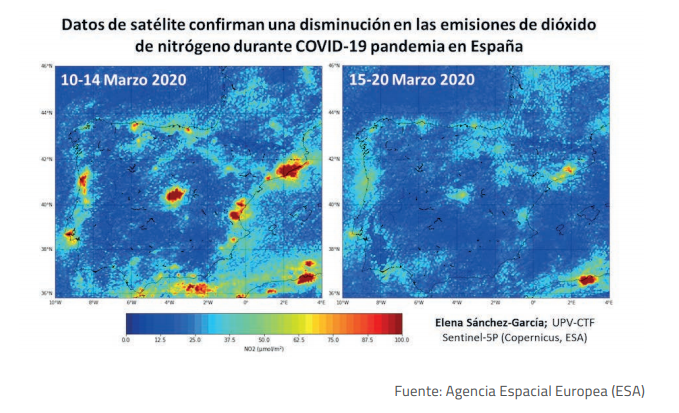The Carne y Salud platform has produced a report “Livestock and meat production and sustainability” in which perceptions will be crumbled Vs reality, sustainability and the European model of production, balanced consumption, which means the meat industry in rural areas and the sector’s commitment to sustainability.
Anafric is going to break down the report every week on Friday and we begin with the section dedicated, precisely, to greenhouse gas emissions.
As you know, for months the public opinion has been impacted with numerous news in which livestock and meat production have been erroneously pointed out as one of the main culprits of global warming of the Earth and emissions Greenhouse Gases (GHG), at the same time that it was proposed that the consumption of these foods had to be drastically reduced to save the planet.
However, official emissions data from the Government of Spain and international institutions have already shown that this partial or interested information is very far from reality as far as our country is concerned, and in many other areas of the world, given that emissions from the livestock sectors, which are recorded as from all other human activities, are far from being the main culprits of climate change.
Official emissions data from the Government of Spain and international institutions have already shown that this partial or interested information is very far from reality as far as our country is concerned.
Furthermore, the situation generated by COVID-19, paralyzing most non-essential activities, has further questioned all this negative information about the influence of food production on climate change.
According to the European Environment Agency, all Spanish cities have reduced their nitrogen dioxide emissions. Madrid has cut them by half, while Barcelona has reduced them by 60%.

The data on pollution that is being collected in our country and in other areas of the world since the start of this pandemic is clearly demonstrating that the paralysis of transport activity entailed by measures of population confinement and “cooling” of the economy is reducing pollution to levels never recorded.
The paralysis of the transport activity that the measures of population confinement and of “cooling” of the economy entail is reducing the contamination in levels never registered.
In fact, a study carried out by researchers from the Center for Physical Technologies of the Universitat Politècnica de València (UPV) with data from the European Space Agency (ESA), indicates that the levels of concentration of nitrogen dioxide, one of the main responsible for Air pollution has decreased an average of 64% in the main Spanish cities after the measures decreed to combat COVID-19.
However, the food production and supply sectors, most especially those of livestock production, processing and marketing of meat and meat products, have continued to carry out their activities, even with a greater effort to keep the population adequately supplied with safe food. and of quality.
This situation highlights a reality that not everyone shared and that is that the food production system, mainly the livestock and meat productions that exist in our country are not the cause of climate change.
This situation highlights a reality that not everyone shared and that is that the food production system, mainly the livestock and meat productions that exist in our country are not the cause of climate change.
















